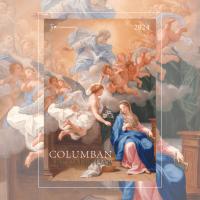Columban Fr Warren Kinne comments on the Encyclical Letter, Fratelli Tutti of the Holy Father Francis on fraternity and social friendship.

Our Pope Francis has written three key documents to date and they interlock into a vision that is fairly all-encompassing. His first, the Apostolic Exhortation, Evangelii Gaudium, 24 November 2013, was about evangelization, focusing on the Church’s mission to bring the Good News of God into our world. At the time, I thought to myself “ho hum – what’s new here”. The publication of his encyclical on our Common Home was a “wow” moment for me. I found it truly insightful. Yes, for a long time I had accepted the fact that we were destroying our common home and that we were interrelated with the natural world – not outside of it but bits of stardust ourselves. But, it was the analysis of what was behind the crisis we face that was so well researched and thorough. Now with the encyclical, Fratelli Tutti, we have the last piece of the puzzle – our interrelationship with each other: that everyone is brother and sister one of another. While for Christians this is a truism, the Pope has taken it very seriously and shown the implications of this religious belief for all sorts of moral issues of our day from womb to tomb and from migration to simple living. It is the Sermon on the Mount and the Good Samaritan spelt out in practical terms that calls us to be Mahatma Gandhis and Martin Luther Kings.
The Pope has also been adept at crossing the boundaries of denomination and faith in the encyclicals. He talks about inspiration from the Orthodox Patriarch Bartholomew for his common home encyclical and has thanked the Egyptian Islamic scholar and the current Grand Imam of al-Azhar Ahmed Mohamed Ahmed El-Tayeb for his crossing of the boundaries in treating everyone as a brother and sister.
In Fratelli Tutti the Pope dreams of a single human family without borders. This is not as a homogenous soup out of the blender, but more a minestrone that shows a respect for cultural and religious difference.
Chapter One starts with our shattered dreams brought about by our moving from an “historical consciousness”. There is no overarching story to sustain us. No tradition. This forms the basis of all the calamities you can imagine – but there is hope when we realize that no one is saved alone. We need each other. The pandemic should have taught us this.
Chapter Two is the foundational biblical story about the person abandoned on the wayside and do I pass-by or do I become my brother’s keeper.
Chapter Three is the vision of an open world where we move between a world of “associates” to a world where love excludes no one and is open to all. Here the Pope touches on the universal destination of the earth’s goods and that a real and lasting peace will only be possible on the basis of a global ethic of solidarity and cooperation.
Chapter Four is called “a heart open to the world” but is really about migration. Here the Pope speaks about the need of global governance and international collaboration with long-term planning that doesn’t just deal with emergencies but that works on behalf of the supportive development of all people. Ideally, he thinks that migration should be unnecessary and avoidable but this requires development in third world countries and the absence of wars.
Chapter Five is calling for better politics. This involves many things in relation to how decisions are made that firstly put the hierarchy of human value in the correct order with culture over politics and politics above economics. There is too the need for a reform and strengthening of the United Nations Organization.
Chapter Six is on dialogue and friendship that must be based on objective truths and not on a relativism that is reductionist. In a pluralistic society dialogue is the best way forward. The Pope has the vision of a new culture that is many-faceted that he refers to as a polyhedron. In this section there are some very good passages on “kindness”.
Chapter Seven talks about renewed encounter. We need peacemakers who facilitate truth and reconciliation. Forgiveness demands that justice is done but in this process we are not to fuel anger. There is to be a culture of encounter where we forgive which does not mean forget. Our resolution takes place on a higher plane that preserves what is valid and useful on both sides of the negotiation.
Chapter Eight is about religion and fraternity. If we attempt to remove God from a society, that society ends up adoring idols. There must be freedom of conscience and religious freedom and a proper hermeneutic of sacred texts. The goal of dialogue is to establish friendship, peace and harmony, and to share spiritual and moral values and experiences in a spirit of truth and love (271).
The Pope concludes his long encyclical with two prayers – one Trinitarian for mainstream Christian groups and the other a prayer that could be more multi-faith.
I don’t find any particular idea in the encyclical novel but together each section interfaces to give a vision of a new world order that we can certainly dream about and hopefully try to implement.
Related links
- Read more from the current Columban eBulletin



Ann Watson-Brown:
Mar 17, 2021 at 04:08 PM
I have just read a book on Pope Francis .It is really interesting that as Pope he probably writes about aspects of religion that he learnt in his variety of roles in Buenos Aires and other places . Nothing is set in concrete . We can all work towards a better world
. Aires.